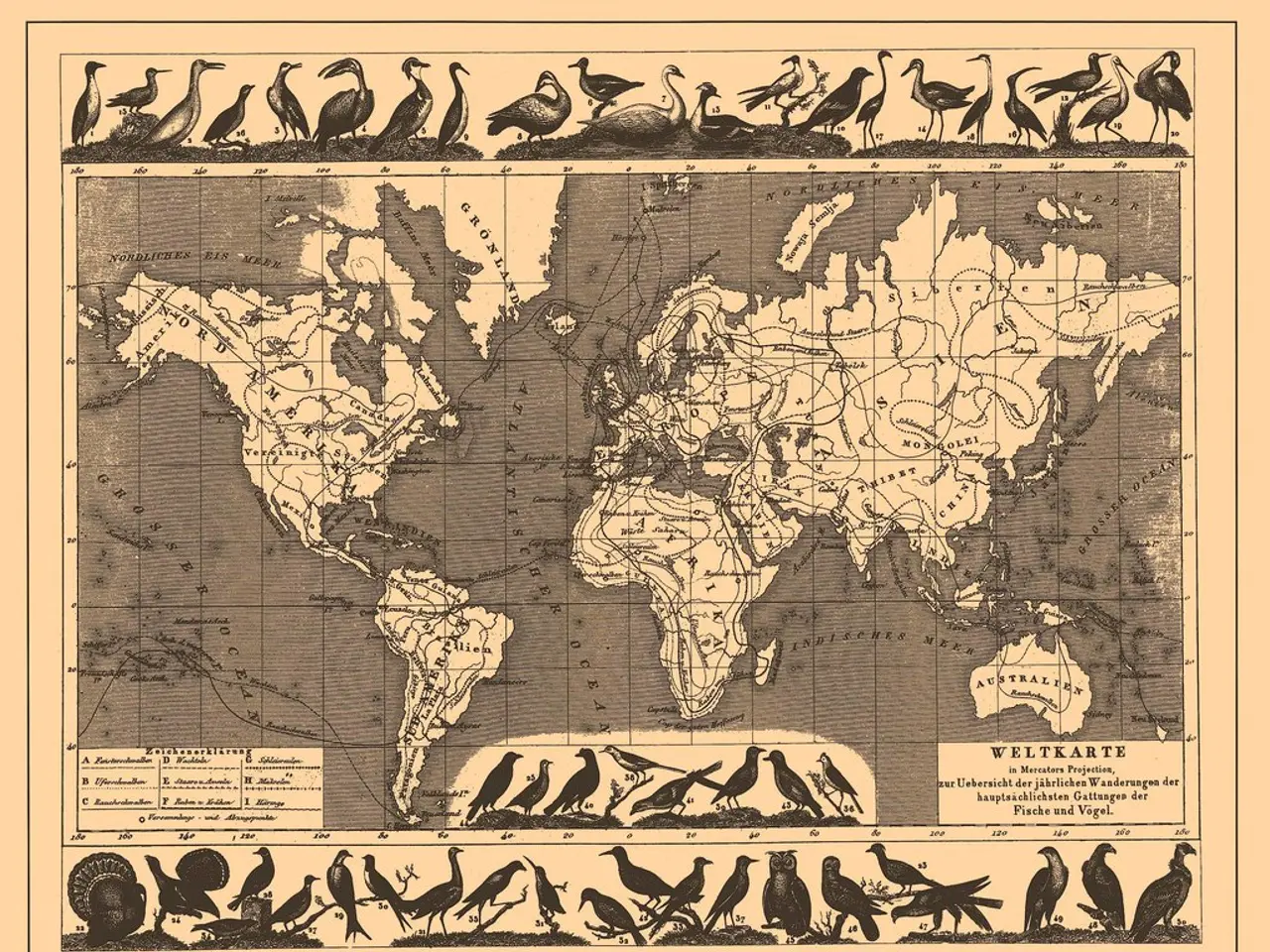Berlin adjusts its stance in the Gaza conflict
In a significant development, Chancellor Friedrich Merz of Germany has announced a halt to the export of military goods to Israel, citing concerns over Israel's decision to escalate its military operations in the Gaza Strip. This move comes amidst a complex political landscape, with Israel's Prime Minister, Netanyahu, expressing a desire to take control of the entire Gaza Strip, but not permanently occupy it.
The German government's decision marks a notable shift in its stance, given its historical support for Israel, driven by Holocaust responsibility. However, this current position balances support for Israel’s right to self-defense with humanitarian concerns about Gaza’s civilian population. Merz emphasized Israel’s obligation to address the humanitarian fallout and allow aid access amid reports of widespread suffering in Gaza.
The potential consequences for Israeli military capabilities include a limitation in receiving German-made weapons and military equipment, potential impact on the replenishment and operational readiness of Israeli forces, and an increased feeling of diplomatic isolation from a key European arms supplier. However, it's important to note that up to mid-May 2025, Germany had approved €485 million ($565 million) in military exports to Israel, reflecting significant prior support.
The Israeli security cabinet has approved a plan to take the city of Gaza, which includes principles for ending the war such as disarming Islamic Hamas, returning hostages, demilitarizing the Gaza Strip, establishing Israeli security control, and establishing a civilian administration not subject to Hamas or the Palestinian Authority. The cause of the Gaza war was the massacre of Hamas and other extremists from the Gaza Strip on October 7, 2023, with 1,200 deaths and about 250 abducted.
The opposition parties, including the Green Party and the Left Party, want further steps from the federal government, including serious pressure for an end to the war, the release of hostages, and a political perspective. The Central Council of Jews in Germany has criticized Merz's announcement, stating it runs counter to previous promises of solidarity.
Lars Klingbeil, Vice Chancellor and federal finance minister, has expressed solidarity with Israel but emphasized the need to address the humanitarian suffering in Gaza. Lea Reisner, a Left Party politician, has called for suspending the EU association agreement and recognizing Palestine.
Chancellor Merz has criticized Israel's decision to escalate the fighting in the Gaza Strip, while acknowledging Israel's right to defend itself against Hamas terrorism. The halt does not imply a complete cut-off of all military aid but focuses on arms potentially usable in Gaza, leaving some room for flexibility or future reassessment.
Meanwhile, the Young Union, a youth organization, has criticized Merz's decision as a break with Union policy. Johannes Winkel, JU chairman and CDU member of the Bundestag, has accused Israel of doing "the dirty work for us" without German weapons. Foreign Minister Johann Wadephul had warned against annexation of the West Bank or Gaza Strip during a recent visit to Israel and the Palestinian territories, which may have contributed to the German government's disapproval of Israel's decision to escalate the war.
This news comes as a significant diplomatic maneuver, signaling diplomatic disapproval of Israel’s Gaza offensive and urging attention to humanitarian concerns. The long-term implications of this decision remain to be seen.
References:
- BBC News
- Deutsche Welle
- The Jerusalem Post
- In addition to the ongoing war-and-conflicts in the Gaza Strip, the German government's decision to halt the export of military goods to Israel has also brought casino-and-gambling, politics, general-news, and crime-and-justice into the spotlight, as various parties express their opinions on the matter.
- The German government's stance on the war-and-conflicts in the Gaza Strip is not only influencing politics but also the casino-and-gambling industry, as some parties call for the suspension of the EU association agreement, which could potentially harm German-Israeli economic ties.
- Besides war-and-conflicts, political debates about Israel's actions in the Gaza Strip have led to discussions on crime-and-justice, as some accuse Israel of committing human rights abuses, while others defend its actions as necessary for self-defense.




